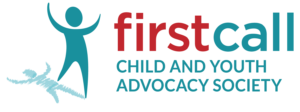For Immediate Release
December 3, 2024
BC Child Poverty on the Rise, Special Focus on Single Mothers
Vancouver, BC — The 2024 BC Child Poverty Report Card, released today by First Call Child and Youth Advocacy Society, reveals a continuing sharp and troubling rise in child poverty across British Columbia, with 1 in 6 children—147,570 kids—living below the poverty line in the latest 2022 information from Statistics Canada. This marks a 16.8% increase from 2021 and highlights the ongoing struggles of families facing economic hardship since COVID pandemic payments ceased.
Among the most vulnerable are children in lone-parent BC households, 45.5% of whom are living in poverty. A special feature in this year’s report, “Between Survival and Dreams: The Resilience of BC’s Single Moms,” authored by acclaimed BC journalist Daphne Bramham, sheds light on the day-to-day struggles of lone-parent households led by single mothers, as they navigate skyrocketing costs, inaccessible child care, and the barriers to achieving economic stability.
“BC’s child poverty rate has not only rebounded, but worsened,” says Adrienne Montani, Executive Director of First Call. “These figures are a call to action. Behind every statistic is a child whose potential is being constrained by circumstances beyond their control.”
Key findings include:
- Widening inequality: The income gap between BC’s wealthiest and poorest families continues to grow, with the top 10% earning 24 times more than the bottom 10%.
- Indigenous children disproportionately affected: The poverty rate among children on a sample of BC First Nations reserves is an alarming 34.8%, rising to 42.2% in the rural reserves with data this year.
- Rising costs deepen struggles: The “poverty gap”—the shortfall between family incomes and the poverty line—now ranges between $14,000 and $16,000 annually.
The report also highlights how the withdrawal of pandemic-era income supports has exacerbated the situation for families in the workforce and for families on social assistance.
“Government income supports, such as the Canada Child Benefit and BC Family Benefit, and expanding access to affordable housing and child care, are key to reducing the depth of poverty for many BC families with children, says Lorraine Copas, Executive Director of SPARC BC. “We know what is working and need to accelerate these investments to reverse the upward trend in child poverty rates.”
Recommendations for Change
First Call is urging policymakers to take bold action, including:
- Raising incomes through living wages and increased income supports.
- Expanding access to affordable housing, child care, and public transportation.
- Prioritizing targeted supports for Indigenous, racialized, and lone-parent families.
The 2024 BC Child Poverty Report Card, including Bramham’s compelling feature on single mothers, is available at http://www.firstcallbc.org here
This year marks our 28th report from British Columbia, as a partner in the national Campaign 2000 effort to end child poverty in Canada. Despite a 35-year-old federal promise, Canada’s child poverty rates have surged. In 2022, nearly 1.4 million children across Canada—1 in 5—were living in poverty, with 360,000 added in the last two years. Record increases in 2021 and 2022 mark the largest setbacks in a decade, exposing the limits of the federal poverty reduction strategy. Families now face deeper poverty than in 2015, as the Canada Child Benefit fails to keep pace, widening income inequality.
About First Call
First Call Child and Youth Advocacy Society is a non-partisan charity that conducts research, educates the public and advocates for policies to improve the lives of children and youth in BC.
Find out more by visiting our website.
—30—
For media inquiries or to arrange an interview with Adrienne Montani, please contact:
Judy Rudin
Manager, Communications and Development
Email: judy@firstcallbc.org
Cell: 604-219-5168

Situated on the ancestral, traditional and unceded territories of the xʷməθkwəy̓əm (Musqueam), Skwxwú7mesh (Squamish), and sel̓íl̓witulh (Tsleil-waututh) Nations
